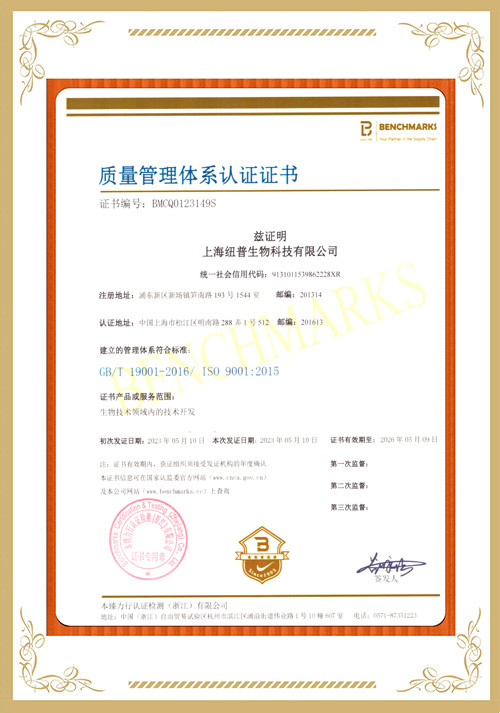- 抗体类型:多克隆
- 抗体来源:兔
- 抗体应用:ELISA, WB, IHC
- 特异性:Human,Mouse,Rat; other species not tested.
产品详情
-
产品名称
Seladin 1 antibody
-
抗体类型
多克隆
-
抗体来源
兔
-
抗体亚型
兔IgG
-
抗体描述
Seladin 1 Rabbit Polyclonal antibody. Positive WB detected in Jurkat cells, HEK-293 cells, HepG2 cells, MCF7 cells, mouse lung tissue. Positive IHC detected in human breast cancer tissue, human liver tissue, human lung tissue, human ovary tissue, human placenta tissue, human skin tissue, human spleen tissue, human testis tissue. Observed molecular weight by Western-blot: 60kd
-
抗体应用
ELISA, WB, IHC
-
应用推荐
Recommended Dilution:
WB: 1:200-1:2000
IHC: 1:20-1:200
-
特异性
Human,Mouse,Rat; other species not tested.
-
蛋白别名
DHCR24, Diminuto/dwarf1 homolog, KIAA0018, Nbla03646, Seladin 1, SELADIN1
-
制备方法
This antibody was obtained by immunization of Seladin 1 recombinant protein (Accession Number: NM_014762). Purification method: Antigen affinity purified.
-
组分
PBS with 0.1% sodium azide and 50% glycerol pH 7.3.
-
储存方法
Store at -20℃. DO NOT ALIQUOT
-
背景介绍
DHCR24(3-beta-hydroxysterol delta-24-reductase), a member of the flavin adenine dinucleotide (FAD)-dependent oxidoreductases, catalyzes the reduction of the delta-24 double bond of sterol intermediates during cholesterol biosynthesis.The dhcr24 expression was shown to be downregulated in brain areas affected by Alzheimer’s disease and endogenous DHCR24/seladin-1 levels are highly up-regulated upon acute oxidative stress while expression declines to very low levels upon chronic exposure(PMID:17984220).
-
参考文献
- Khuda II, Koide N, Noman AS. Seladin-1 is a novel lipopolysaccharide (LPS)-responsive gene and inhibits the tumour necrosis factor-alpha production and osteoclast formation in response to LPS. Immunology. 131(1):59-66. 2010.
- Mirza R, Qiao S, Tateyama K, Miyamoto T, Xiuli L, Seo H. 3β-Hydroxysterol-Delta24 reductase plays an important role in long bone growth by protecting chondrocytes from reactive oxygen species. Journal of bone and mineral metabolism. 30(2):144-53. 2012.
- Legg RL, Tolman JR, Lovinger CT, Lephart ED, Setchell KD, Christensen MJ. Diets high in selenium and isoflavones decrease androgen-regulated gene expression in healthy rat dorsolateral prostate. Reproductive biology and endocrinology : RB&E. 6:57. 2008.


